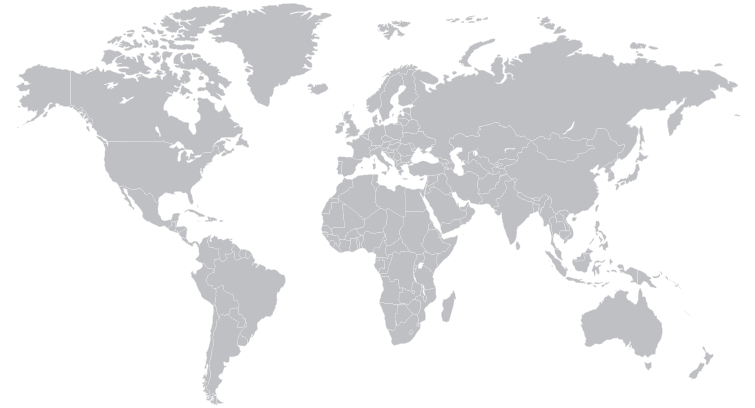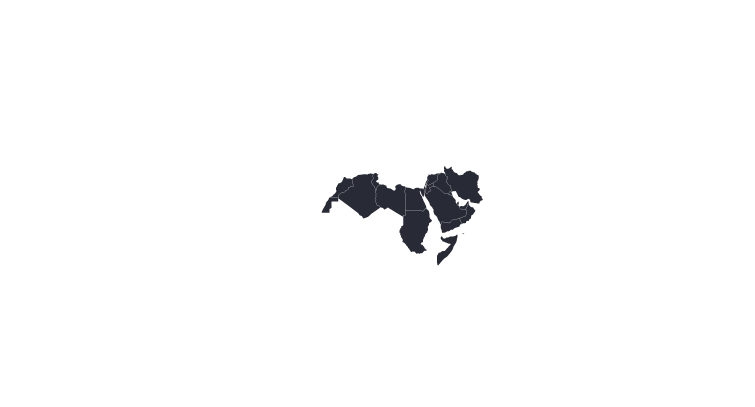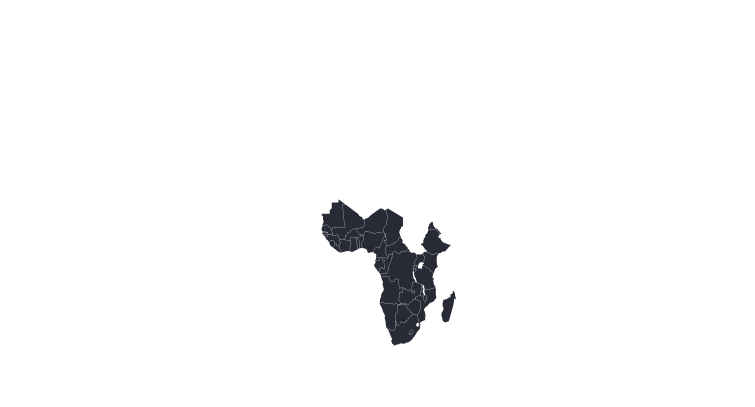Project
GLACY (Global Action Cybercrime)
About
Cybil code: G0189
Status: Finished
From: Nov 2013
To: Oct 2016
Funders
Implementors
Partners
Themes & Topics
Contact
Summary
The GLACY project strengthened criminal justice capacity in seven priority countries through training and advice, contributing to four of the countries subsequently acceding to the Budapest Convention on Cybercrime and the launch of the national computer emergency response team in Tonga.
Details
Aim
The aim of GLACY project was to enable criminal justice authorities to engage in international cooperation on cybercrime and electronic evidence on the basis of the Budapest Convention on Cybercrime. It’s specific objectives were:
- To help the development of domestic law enforcement training strategies
- To facilitate the access to training materials developed by European Cybercrime Training and Education Group (ECTEG)
- To benchmark CERTs’ response to a simulated cyber attacks
Context
The project was funded as an action aimed at fighting organised crime under the long-termcomponent of the European Union’s Instrument for Stability. It was co-funded by the Council ofEurope. It had a budget of 3.35 million Euros.
The project had 7 activity lines working towards the following results:
- Result 1: Engagement of decision-makers: Decision-makers of project countries are aware of cybercrime threats and rule of law/human rights implications and have identified strategic priorities regarding cybercrime
- Result 2: Harmonisation of legislation: Amendments are drafted to bring domestic legislation fully in line with the Convention on Cybercrime (CETS 185) and to improve legislation and regulations on data protection and child online protection
- Result 3: Judicial training: Enhanced skills for judges and prosecutors regarding cases on cybercrime and electronic evidence
- Result 4: Law enforcement capacities: Enhanced specialised skills and institutions for investigations on cybercrime and electronic evidence
- Result 5: International cooperation: Enhanced international law enforcement and judicial cooperation against cybercrime based on Chapter III of the Budapest Convention on Cybercrime
- Result 6: Information sharing: Increased public/private and interagency information sharing in line with data protection standards
- Result 7: Assessment of progress: Governments are able to assess progress made in the investigation, prosecution, adjudication of cybercrime and cases involving electronic evidence, including international cooperation
Outcomes
Sri Lanka became a Party to the Budapest Convention on Cybercrime in September 2015.
Tonga launched its national Computer Emergency Response Team (CERT) in July 2016.
Senegal became a Party to the Budapest Convention on Cybercrime in December 2016.
The Philippines became a Party to the Budapest Convention on Cybercrime in February 2018.
Morocco became a Party to the Budapest Convention on Cybercrime in June 2018.
Outputs
In October 2016, GLACY participant countries agreed strategic priorities for cooperation on cybercrime and electronic evidence.
The project produced several guides documents:
- Guidelines for the delivery of Council of Europe judicial training courses on cybercrime
- A good-practice report on cybercrime reporting mechanisms
- A Basic Guide for the management and procedures of a Digital Forensics Laboratory (DFL Guide)
Activities
Activities within the GLACY project included:
Country-specific training and support
- Support to the 4th edition of Sri Lanka’s Cyber Security Summit in 2016.
- In June 2016, the project and Department of Justice of the Philippines – Office of Cybercrime (DOJ-OOC) delivered a set of five trainings on cybercrime and electronic evidence to an audience of judicial and law enforcement professionals from the Philippines. The sessions aimed to train 165 professionals from the Judiciary (presiding judges), Department of Justice – National Prosecution Service, DOJ-OOC, Department of Justice – Legal Staff, Public Attorney’s Office, National Bureau of Investigation – Cybercrime Division and Philippine National Police – Anti-Cybercrime Group. The set included the second delivery of the Introductory Judicial Course in the Philippines. The first national delivery of the Introductory Judicial Course by the trained trainers was performed in March 2015.
- In February 2016, the Romanian Computer Emergency Response Team (CERT-RO), at the request of the Council of Europe, conducted Live Data Forensics training in Sri Lanka to the investigators/experts of the National Police of Sri Lanka and of the national CERT, as well as for one representative of the Ministry of Meteorology, Energy, Information, Disaster Management, Climate Change and Communications (MEIDECC) from Tonga.Seperatelty, the Council of Europe facilitated two study visits of the Tongan authorities to the Sri Lankan CERT (11-12 February) and to the CERT Mauritius (24-25 March).
- A 4-day exercise in South Africain September 2015 to support the national and departmental CERTs to benchmark their response to a simulated cyber attack.
- In January 2016, experts from the GLACY project and the International Cyber Security Protection Alliance conducted an assessment and advisory mission to Sri Lanka on the topics of cybercrime reporting systems and current modalities for interagency and public-private cooperation of cybercrime.
- The Romanian Computer Emergency Response Team (CERT-RO), at the request of the Council of Europe, ran 4-day exercise in South Africain September 2015 to support the national and departmental CERTs to benchmark their response to a simulated cyber attack.
- A series of expert Training of Trainers sessions in Senegal and Morocco between 7 and 23 September 2015. The aim of these courses is to establish a framework for local trainers to instruct their peers on how to approach a crime scene containing electronic evidence and to process the evidence in ways that will preserve its integrity and value.
- Trainers trained under the GLACY project (see below) delivered the first judicial training course on cybercrime and electronic evidence in Mauritius from 31 August to 2 September 2015.
- An international conference on ‘Assessing the Threat of Cybercrime’ in Colombo, Sri Lanka, on 26-27 March 2015.
- A Judicial Training Skills and Introductory Cybercrime and Electronic Evidence Course in Mauritius on 26-30 January 2015 for 18 judicial and law enforcement officers so that they themselves could be trainers.
- AJudicial Training Skills and Introductory Cybercrime and Electronic Evidence Course in Senegal on 8-12 December 2014 for14 magistrates plus 1 law enforcement officer so that they themselves could be trainers.
- A Law Enforcement Training Strategy Workshop and Workshop on Interagency Cooperation on 24-28 November 2014 in the Philippines. These workshops were to follow up on the draft law enforcement training strategies prepared under GLACY at EUROPOL in The Hague in May 2014, and to promote interagency cooperation on cybercrime and electronic evidence.
- An Introductory Judicial Training of Trainer’s course on 27 November 2014 in the Philippines to train the trainers for course for judges and prosecutors on cybercrime and electronic evidence developed by the Council of Europe.
- A Law Enforcement First Responder Trainer’s Course and Law Enforcement Training Strategy Workshop on 17-21 November 2014 in South Africa. The workshop on law enforcement training strategies on cybercrime and electronic evidence and trained trainers in the delivery of courses for 1st responders.
- An Introductory Judicial Training of Trainers on 24-28 November 2014 in Morocco to train trainers who could deliver a course on cybercrime and electronic evidence developed by the Council of Europe.
- Support to the participation of two Moroccan and one Senegalese officers in a law enforcement training organized by the Belgian police, in Brussels, Belgium, from 8 – 19 September and 13 – 17 October 2014.
- During 11-14 August 2014 the project held a conference and workshops in Mauritius on topics including: the Budapest Convention on Cybercrime; law enforcement access to data; judicial and law enforcement training strategies; child protection; criminal law reform and international cooperation.
Advisory, needs assessment and review missions
- On 19-22 September 2016, the Council of Europe and INTERPOL undertook a joint needs assessment mission to the Dominican Republic. The Dominican Republic was already a Party to the Budapest Convention and would become a hub for activities in Latin America under the Global Project on Cybercrime Extended (GLACY+).
- On 15-18 August 2016, a team led by the GLACY Project Manager with two international CoE experts and one INTERPOL (IGCI) staff member, visited the Philippines to make a final evaluation of the GLACY project and an initial assessment for the upcoming GLACY+.
- On 15-18 August 2016, staff of the Cybercrime Programme office (C-PROC) together with experts from the University of Montpellier and the Federal Belgian police visited Senegal to assess the impact of GLACY and prepare for GLACY+.
- On 8-11 August 2016, the project conducted an advisory mission to Sri Lanka to review progress and results achieved. The overarching aim of the mission was to assess the country’s capacity to act as hub for the South Asian region within the GLACY+ initiative.
- On 30 May – 3 June, the project conducted an advisory mission to Tonga to review progress and define priorities of the actions to be undertaken under GLACY+.
- A country visit to Sri Lanka on 10-14 November 2014 to prepare a situation report and needs analysis as well as a workplan for GLACY activities in Sri Lanka.
Delivering, or supporting participation in, international cybercrime conferences/events
- The closing conference of the project and the launch event for GLACY+ was held from 26-28 October 2016 in Romania.
- The programme team presented lessons from GLACY to a conference the international symposium “ASEAN Cyber Security and Cyber Crime Center: Possibility and Way Forward”, which was hosted by the Office of the Council of State of Thailand on 14-16 September 2016 to explore the possibility of establishing a Cyber Security and Cybercrime Centerto serve the 10 countries ofASEAN.
- In July 2016, the project delivered an international workshop “Efficiency of legislation on Cybercrime and electronic evidence measured through statistics”in collaboration with the Institute Superieure de la Magistrature (ISM) and the General Directorate for Criminal Affairs of the Ministry of Justice in Rabat, Morocco.
- In June 2016, the project managerattendedthe Global Forum on Cyber Expertise (GFCE) Annual Meeting in Washington to present on the project.
- The Council of Europe was invited to participate at the First International Conference on the Internet, Cyber Security and Information Systems (ICICIS) that took place in Gabarone, Botswana between 17 and 20 May 2016.The conference brought together stakeholders and delegates in workshops and helped feeding into the development of a Model National Cybersecurity Strategy that could further be used as a template by the participating countries from the region and the continent.
- The project delivered the workshop “Improving international cooperation on cybercrime and electronic evidence in West Africa” was held on 9-11 May 2016 in Senegal for 50 delegates from 9 countries of West Africa (Benin, Cape Verde, Côte-d’Ivoire, Ghana, Guinea-Bissau, Nigeria, Senegal, Sierra Leone and Togo), together with representatives of ECOWAS, the African Union Commission, the European Union and Council of Europe.
- The project delivered the “International workshop and training for 24/7 points of contact of the GLACY countries” was held in Sri Lanka on 25-27 April 2016. It brought together representatives of high-tech or cybercrime investigation units tasked with international cooperation to receive up-to-date knowledge on the set up, responsibilities and authority of 24/7 units.
- Support to the participation of cybercrime specialists from more than 20 countries in the 2nd INTERPOL/EUROPOL cybercrime conference in October 2014.
- The GLACY Project contributed to the 11th Plenary of the T-CY, in Strasbourg on 17 – 18 June 2014. The conference brought together cybercrime experts as well as data protection authorities, civil society, industry and academia. The T-CY Committee Plenary was followed by a Conference on Article 15 Safeguards and Law Enforcement Access to Data.
- On 23 November 2015, African Gendarmeries met for the 4th consecutive year in Senegal. This was followed by an International Forum on Cybercrime on 24 November. The two events reflect the consensus that international cooperation is crucial for the capacity of African countries to effectively counter cybercrime. GLACY experts attended.
Events and studies to inform the project approach and training material
- The “GLACY – Getting Started” launch conference was held in Dakar, Senegal, from 24 to 27 March 2014. It was opened by the Minister of Interior of Senegal, Mr. Abdoulaye Daouda Diallo, by Mr. Marc Boucey, Delegation of the European Union in Dakar, and by Alexander Seger, Council of Europe. More than 100 representatives and cybercrime experts from some 30 countries participated in plenary sessions and workshops. The conference also marked the launch of the new GLACY+ project on Global Action on Cybercrime Extended. GLACY+ will help countries of Africa, Asia/Pacific and Latin America to give follow up to these Strategic Priorities.
- Meetings of the GLACY Steering Committee
- Under activity 3.4 of GLACY (“Train of trainers in the delivery of the training courses”), a preparatory meeting was held in Montpellier (8-10 September 2014) to establish methodology and framework for the Train of Trainers sessions.
- A good-practice study on cybercrime reporting mechanisms (prepared under Activity 6.4 of GLACY) focused on building on the experience of several existing reporting mechanisms around the world. It also aims at providing advice to countries which consider or are in the process of setting up their own cybercrime reporting mechanisms.
- An international workshop on mainstreaming judicial training on cybercrime and electronic evidence on 2-3 June 2014 in Bucharest. In 2009, the Council of Europe adopted a concept on cybercrime training for judges and prosecutors , tested it successfully in South-eastern Europe, and developed several training materials (Basic course, advanced course, Electronic Evidence Guide). The aim of the workshop was to support the implementation of this concept in domestic judicial training concepts of beneficiary countries under CyberCrime@EAP and GLACY.
- The June 2014 workshop on judicial training was followed by a workshop in South Africa on 11-13 April 2016 to discuss the long-term integration of judicial training on cybercrime into the curricula of training institutions, preferably as part of broader judicial training strategies.
- An international workshop on law enforcement training strategies and access to training materials on 12-16 May 2014 in The Hague. The European Cybercrime Centre https://www.europol.europa.eu/ec3 (EC3) hosted an international workshop on Law enforcement training strategies and access to training materials. Addressed to representatives of law enforcement training institutions and cybercrime units, the workshop aimed at helping the development of domestic law enforcement training strategies and facilitating the access to training material materials developed by ECTEG http://www.ecteg.eu/ (European Cybercrime Training and Education Group).
- With support from GLACY and the Cybercrime@Octopus project, the Office of Cybercrime of the Department of Justice of the Philippines held a regional conference on cybercrime and cybersecurity strategies for countries of the ASEAN region on 11-12 November 2015.
WEBSITES:
Main website link
Other website links
The Cybil project repository is being continuously updated, and the information it contains is either publicly available, or consent for publication was given by the owner. Please contact the portal manager with any additional information or corrections. Whilst every reasonable effort is made to keep the content of this inventory accurate and up to date, no warranty or representation of any kind, express or implied, is made in relation to the accuracy, completeness or adequacy of the information contained in these pages.













